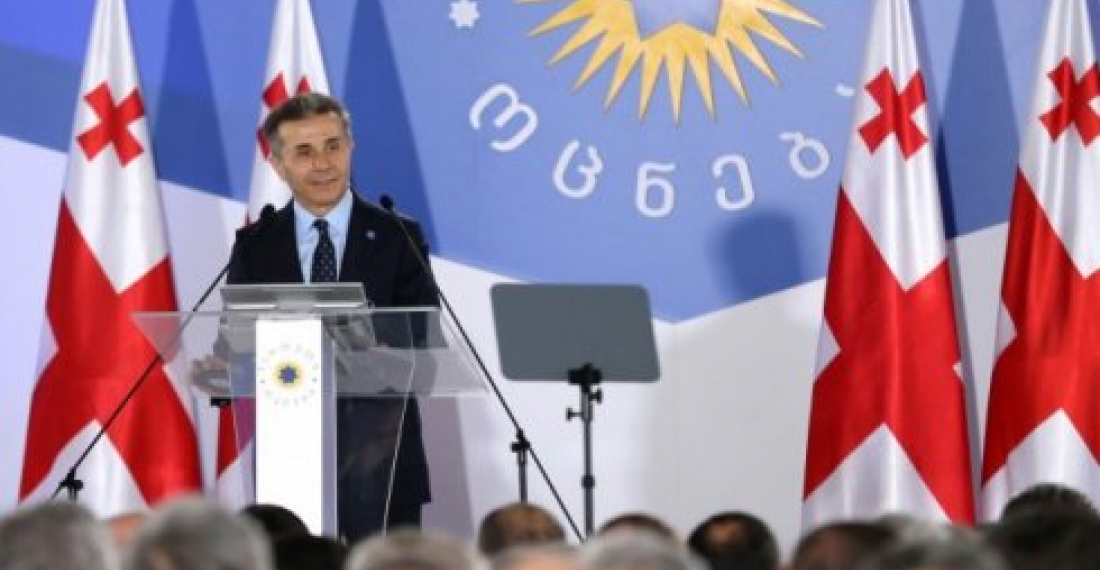Bidhzina Ivanishvili has returned to front line Georgian politics. On Friday (11 May) he was elected Chairman of the ruling Georgian Dream Party, at a congress held in Tbilisi.
In 2012 Ivanishvili led a broad coalition in defeating the then government of Mikheil Saakashvili in elections, leading to a rare peaceful transfer of power through the ballot box in the post Soviet space. He subsequently served as prime minister for one year before retiring back to private life.
Critics of Ivanishvili accused him of continuing to wield power behind the scenes.Addressing the 5th Congress of his party Ivanishvili explained the reasons for his comeback highlighting an "unfavorable socio-economic environment, as well as the permanent attempts to artificially exaggerate the difficult situation." "Unemployment and low salaries and pensions remain a severe problem", he said.
He accused critics of instilling an atmosphere of hopelessness and fear and of trying to convince the people that the country was on the verge of collapse."
Ivanishvili also spoke on what he described as destructive forces who were a threat to Georgian democracy.
Ivanishvili mentioned as the third reason for his return differences within the ruling party. "I had a feeling that the Georgian Dream-Democratic Georgia, the integrity of which lies in its ties with the people, would distance itself from its constituents, if these processes deepened, and this is exactly why I decided to come back," he added.
Commonspace.eu poltiical editor said in a comment that the return of Ivanishvili to front-line politics in Georgia has been broadly welcomed. Supporters of Georgian Dream feel that Ivanishvili is the soul of the party and that his absence created a vacuum in the leadership which was threathening the success of the party in many areas. On the other hand many critics of Ivanishvili say that as head of the ruling party Ivanishvili can be held to account for the party policies and failures. Georgia is at a crucil moment in its political and socio-economic development, and the international situation is also complicated. Firm political direction is therefore in the country's ultimate interest, and Ivanishvili at the moment is the one person who commands enough political support in and out of parliament, to provide it."
source: commonspace.eu
photo: Bidhzina Ivanishvili addressing the 5th Congress of Georgian Dream Party in Tbilisi on 11 May 2018 (picture courtesy of www.gd.ge)






